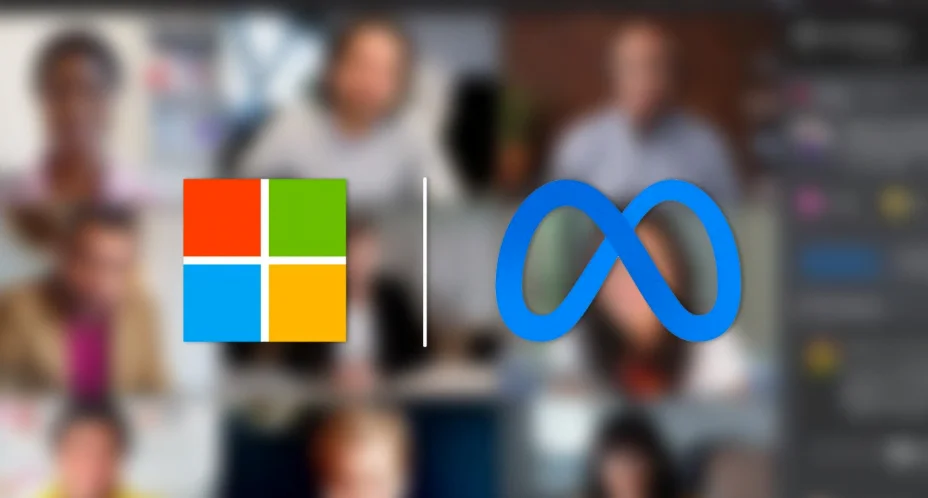The new virtual reality headset from Meta will include a number of Microsoft products; CEO Mark Zuckerberg has dubbed it the “virtual office of the future.”

In an effort to persuade businesses to operate in virtual settings, Meta Platforms has teamed with tech giant Microsoft to integrate a number of Microsoft Office 365 products into Meta’s virtual reality (VR) platform.
Microsoft CEO Satya Nadella stated during Meta’s Connect 2022 keynote on October 11 that Microsoft’s Teams video conferencing program would interface with Meta’s “Quest” and recently launched “Quest Pro” VR gear, enabling individuals to congregate in a virtual space resembling a boardroom.
In Meta’s VR, popular Microsoft productivity tools including Word, Excel, PowerPoint, Outlook, and SharePoint will also be made available. Future features, according to Nadella, will let users stream a Windows Cloud PC to their Meta headsets.
According to Nadella, Meta’s Quest and Quest Pro headsets will be interoperable with Microsoft’s enterprise-level mobile device and identity management programs, enabling businesses to manage and secure VR headsets on their corporate networks just like they would computers or phones.
With a ton of new capabilities, Meta is hoping that its Quest Pro headset will entice people into a virtual workweek. The manufacturer asserts that compared to its previous headset, the new model is more comfortable, performs better, and has enhanced clarity and higher resolution.
Additionally, the Quest Pro is supposed to provide “more intuitive” feedback on its hand controllers and “real-time expression tracking,” in which the user’s virtual avatar imitates real-life counterparts’ facial expressions like grins and winks.
Nadella made reference to the ongoing remote work policies that were initially put in place as a result of COVID-19 restrictions when he remarked that the epidemic has created a “once-in-a-lifetime” opportunity in formerly office-based work environments.
“We’re bringing the Microsoft Teams’ immersive meeting experience to Meta Quest in order to give people new ways to connect with each other,” Nadella said, adding: “Now, you can connect, share and collaborate as though you are together in person.”
“As in-person work ramps up, we want everyone to have the ability to feel like they’re present,” Meta CEO Mark Zuckerberg added.
Additionally, Microsoft Teams will work with Horizon Workrooms, Meta’s virtual reality meeting environment. According to Zuckerberg, this cross-platform interaction will serve as “the framework of the virtual workplace of the future.”
Since last year, when the business changed its name from Facebook Inc. to Meta, most of its attention and resources have gone toward creating what CEO Mark Zuckerberg refers to as an “open” and “interoperable” metaverse.
It hasn’t been cheap; the company’s research and development division, Reality Labs, has already spent $5.7 billion in 2022 just on developing the necessary technology and virtual worlds.
In a July Q2 earnings call, Zuckerberg was unwavering about the “huge opportunity” despite the losses, even admitting that they might persist for a number of years.
